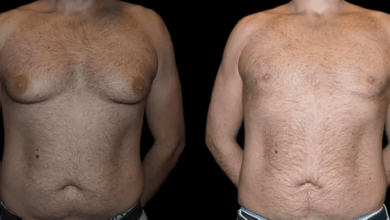Top Treatments for Allergic Rhinitis: Finding Relief from Allergies
Allergic rhinitis, often referred to as hay fever, is a common condition affecting millions of people worldwide. Characterized by symptoms such as sneezing, runny or stuffy nose, itchy eyes, and throat irritation, allergic rhinitis can significantly impact daily life. Finding effective treatments is crucial for managing symptoms and improving quality of life. This comprehensive guide will explore the top treatments for allergic rhinitis, focusing on various approaches to provide relief. Whether you’re seeking allergic rhinitis treatment options or looking for strategies to better manage your condition, this article offers valuable insights.
1. Understanding Allergic Rhinitis
Allergic rhinitis occurs when the immune system overreacts to airborne allergens. Common triggers include pollen, dust mites, mold spores, and pet dander. Symptoms can range from mild to severe and may include:
- Sneezing
- Runny or stuffy nose
- Itchy, watery eyes
- Itchy throat or ears
- Fatigue
Understanding the nature of allergic rhinitis helps in selecting the appropriate treatment strategies for effective symptom management.
Keyword Highlight: For optimal allergic rhinitis treatment, understanding the condition and its triggers is essential.
2. Medications for Allergic Rhinitis
Medications play a significant role in managing allergic rhinitis symptoms. Several types of medications can provide relief, including:
- Antihistamines: These medications block histamine, a chemical released during allergic reactions. Antihistamines help alleviate symptoms such as sneezing, itching, and runny nose. They are available in various forms, including oral tablets, nasal sprays, and eye drops. Common antihistamines include cetirizine, loratadine, and fexofenadine.
- Decongestants: Decongestants work by narrowing the blood vessels in the nasal passages, reducing swelling and congestion. They are available as oral medications or nasal sprays. Popular decongestants include pseudoephedrine and oxymetazoline. However, nasal decongestants should not be used for more than a few days to avoid rebound congestion.
- Nasal Corticosteroids: These are anti-inflammatory medications that reduce swelling and mucus production in the nasal passages. They are highly effective for controlling symptoms of allergic rhinitis and include options like fluticasone, budesonide, and mometasone. Nasal corticosteroids are typically used on a daily basis for the best results.
- Leukotriene Receptor Antagonists: These medications block leukotrienes, chemicals involved in allergic reactions and inflammation. Montelukast is a common leukotriene receptor antagonist used to manage allergic rhinitis symptoms.
Keyword Highlight: For effective allergic rhinitis treatment, medications such as antihistamines, decongestants, nasal corticosteroids, and leukotriene receptor antagonists can provide significant relief.
3. Allergy Immunotherapy
Allergy immunotherapy, also known as allergy shots or sublingual immunotherapy (SLIT), is a long-term treatment option designed to reduce the severity of allergic reactions over time. Immunotherapy works by gradually desensitizing the immune system to specific allergens. There are two main types:
- Subcutaneous Immunotherapy (Allergy Shots): This involves regular injections of gradually increasing doses of allergens. The treatment is typically administered over a period of 3-5 years, with the goal of reducing allergy symptoms and the need for medications.
- Sublingual Immunotherapy (SLIT): SLIT involves placing allergen tablets under the tongue, where they dissolve and are absorbed. This treatment is convenient and can be administered at home after an initial evaluation by an allergist. SLIT is often used for pollen allergies.
Immunotherapy can be highly effective for individuals with persistent allergic rhinitis, especially when medications alone do not provide sufficient relief.
Keyword Highlight: Allergic rhinitis treatment may include allergy immunotherapy, such as allergy shots or sublingual immunotherapy, for long-term symptom relief.
4. Lifestyle and Environmental Modifications
In addition to medications and immunotherapy, making lifestyle and environmental changes can significantly improve allergic rhinitis symptoms:
- Avoidance of Allergens: Identifying and avoiding allergens is crucial in managing allergic rhinitis. This may involve staying indoors during high pollen counts, using air purifiers, and avoiding contact with pets if you are allergic to dander.
- Nasal Irrigation: Using a saline nasal rinse can help clear allergens and mucus from the nasal passages. Neti pots and saline nasal sprays are effective tools for nasal irrigation.
- Maintaining Cleanliness: Regular cleaning of living spaces, including vacuuming with HEPA filters, washing bedding in hot water, and reducing indoor humidity, can help minimize exposure to dust mites and mold.
- Protective Measures: During allergy season, keeping windows closed, using air conditioning, and showering after outdoor activities can reduce allergen exposure.
Keyword Highlight: For comprehensive allergic rhinitis treatment, integrating lifestyle and environmental modifications, such as allergen avoidance and nasal irrigation, can enhance overall symptom management.
5. Natural and Home Remedies
In addition to conventional treatments, some individuals find relief from allergic rhinitis symptoms using natural and home remedies:
- Herbal Remedies: Certain herbs, such as butterbur and quercetin, have been shown to have anti-inflammatory and antihistamine properties. These can be taken as supplements after consulting with a healthcare provider.
- Honey: Local honey is believed to help build immunity to local pollen. Consuming small amounts of honey may provide some relief, though scientific evidence on its effectiveness is limited.
- Essential Oils: Essential oils like eucalyptus and peppermint may help open nasal passages and reduce congestion when used in diffusers or added to steam inhalation.
- Acupuncture: Some individuals report improvement in allergy symptoms with acupuncture, a traditional Chinese medicine practice that involves inserting thin needles into specific points on the body.
Keyword Highlight: Exploring allergic rhinitis treatment options, including natural and home remedies, can offer additional symptom relief and complement conventional treatments.
6. When to Seek Professional Help
While many people manage allergic rhinitis with over-the-counter treatments and lifestyle adjustments, certain situations require professional evaluation:
- Persistent or Severe Symptoms: If symptoms persist despite treatment or are severely impacting daily life, it’s important to seek medical advice.
- Unresponsive to Medications: If standard medications do not provide adequate relief, a healthcare provider may recommend alternative treatments or perform further evaluations.
- Complications: If allergic rhinitis is leading to complications such as sinus infections, asthma exacerbations, or significant sleep disturbances, professional intervention is necessary.
Keyword Highlight: For optimal allergic rhinitis treatment, consult a healthcare provider if symptoms are persistent, severe, or unresponsive to standard treatments.
Conclusion
Finding the right treatment for allergic rhinitis involves understanding the condition, exploring various treatment options, and making lifestyle adjustments to minimize exposure to allergens. Medications, immunotherapy, lifestyle changes, and natural remedies all play a role in managing symptoms and improving quality of life.



